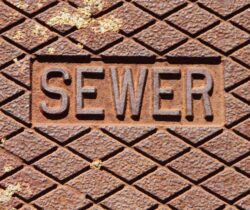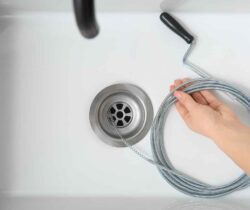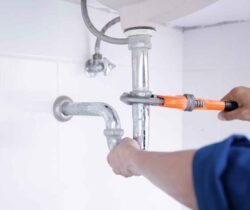Is Your Water Heater Ready for Fall? Tips for Seguin Residents
Why Fall Maintenance for Your Water Heater Matters in Seguin
In Seguin, fall brings cooler weather that increases your reliance on hot water for showers, laundry, and daily routines. That makes this the perfect time to give your water heater the attention it needs before winter temperatures arrive. A water heater that worked fine during summer may struggle in the fall if sediment buildup or worn-out components haven’t been addressed. Texas groundwater often contains minerals that contribute to faster sediment accumulation in traditional tank-style units. This buildup can reduce heating efficiency, increase energy usage, and even cause your system to wear out faster. For tankless water heaters, mineral scale can block internal components and reduce water flow or heating performance. By performing seasonal maintenance in the fall, you’ll improve the system’s performance, extend its lifespan, and reduce the risk of breakdowns when hot water matters most. It’s a simple step that can save you money and stress throughout the colder months ahead.Signs Your Water Heater Needs Fall Maintenance
Your water heater may be working behind the scenes, but there are several clear indicators when something isn’t quite right. If your system is starting to struggle, fall is the best time to catch these issues before cooler temperatures make things worse. Warning Signs to Watch For- Slow heating: If your water is taking longer than usual to warm up, it may be a sign of sediment buildup or a failing heating element.
- Inconsistent water temperature: Fluctuating hot water can indicate a thermostat issue or a struggling burner.
- Strange noises: Rumbling, popping, or crackling sounds from a tank system usually mean there’s sediment at the bottom.
- Rust-colored water: Brown or yellow water coming from faucets can point to corrosion inside the tank.
- Leaks or puddles: Any sign of water near your unit should be addressed quickly to prevent bigger damage.
- Sediment buildup from hard water common in the Seguin area reduces heating efficiency and clogs systems.
- Aging heating elements or burners wear down over time and may struggle to meet demand.
- Worn-out thermostats can misread water temperature and cause inconsistent heating.
- Pressure relief valve failure can lead to dangerous pressure buildup or leaks.
- Temperature swings in fall can stress seals and fittings, especially in older units.
Fall Maintenance Tips for Seguin Homeowners
You don’t need to wait for something to go wrong before giving your water heater a little attention. With a few simple steps, you can keep your system running more efficiently and extend its lifespan, especially during fall, when usage tends to increase.What You Can Do Yourself
- Set the thermostat to 120°F: This is the ideal temperature for both energy efficiency and safety.
- Flush the tank: If you have a traditional tank water heater and feel comfortable doing so, draining a few gallons can remove sediment that lowers efficiency.
- Check the pressure relief valve: Carefully lift the lever to ensure water flows out. If it doesn’t, the valve may need to be replaced.
- Insulate exposed pipes: Adding foam pipe insulation helps reduce heat loss and improves performance on chilly mornings.
- Look for leaks: Inspect the base of the unit, fittings, and surrounding floor for moisture, rust, or corrosion.
When to Call a Professional
- You hear loud or unusual noises coming from your water heater
- Your system is over 8–10 years old and hasn’t been serviced recently
- Water is discolored, smells metallic, or feels inconsistent in temperature
- You don’t feel comfortable flushing the tank or testing components yourself
- You’re not sure what kind of maintenance your specific system requires
How Water Heater Maintenance Saves Money and Stress
Routine water heater maintenance isn’t just about comfort—it’s also a smart way to save on long-term costs and avoid sudden headaches. Whether you have a tank or tankless unit, regular upkeep improves performance and gives you peace of mind when demand for hot water increases in the fall. Here’s how maintenance helps:- Avoids emergency repairs: Catching minor issues early prevents expensive breakdowns during high-use months.
- Improves energy efficiency: Removing sediment and adjusting settings reduces energy use and lowers your monthly utility bills.
- Extends equipment lifespan: A well-maintained unit can last several years longer than a neglected one.
- Ensures reliable hot water: Clean, efficient systems provide consistent temperature and flow.
- Reduces safety risks: Inspections help identify pressure problems, leaks, or faulty valves before they become hazardous.



